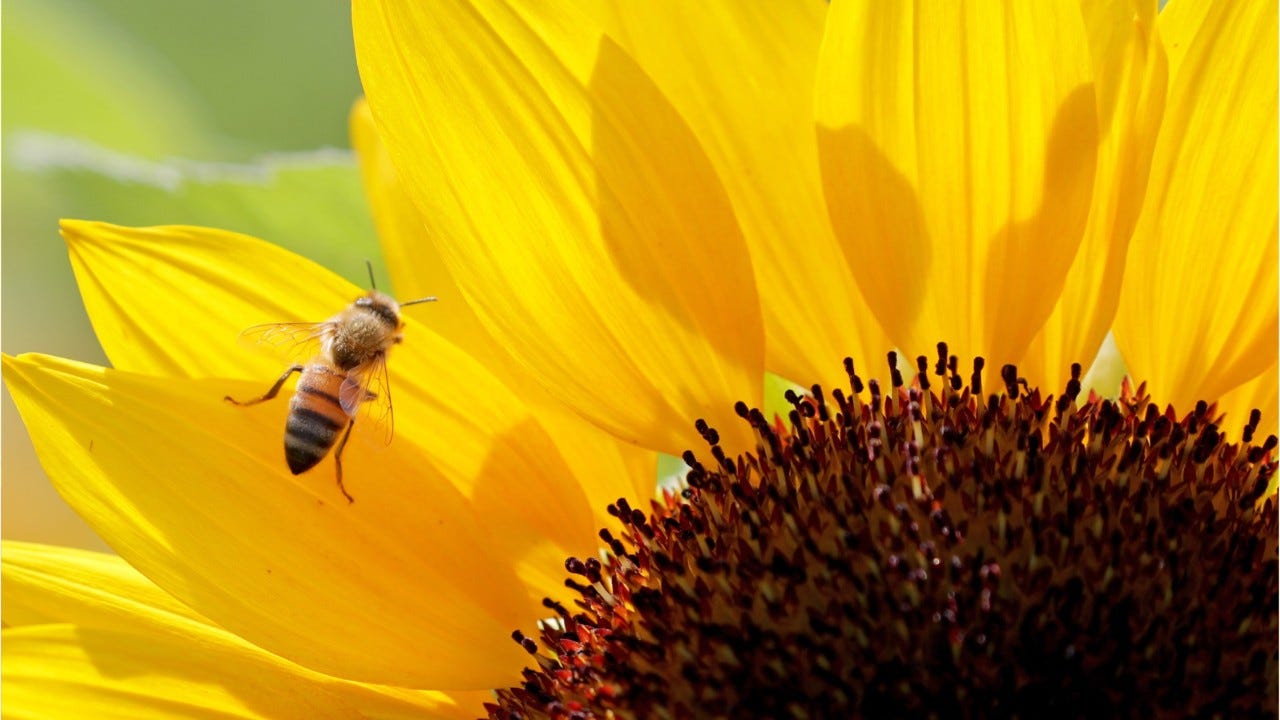No Mow May encourages lawns to go wild for pollinators. Should you participate?

- No Mow May encourages less lawn mowing during May to support pollinators.
- Less frequent mowing benefits bees and other wildlife by providing more pollen and nectar.
- Benefits of No Mow May include water conservation, reduced pollution, and support for beneficial insects.
Lawn care is incredibly important to many people. Having a pristine, well-manicured sea of grass greener than a Shamrock Shake takes character, hard work and an eye toward perfection.
However, did you know that you could take better care of your lawn and the critters in it if you don't mow it during certain parts of the year?
It may sound counterintuitive, but, according to conservation initiative Bee City, if you take the time to grow your lawn out with a few adjustments to keep your neighbors happy, you could make your lawn into a beautiful and sustainable habitat to be proud of.
Here's what you need to know about No Mow May.
What is No Mow May
"No Mow May" is a movement dedicated to encouraging people to reduce the amount of maintenance they do on their lawn during May and let flowers flourish, aiding spring pollinators with creating a healthy ecosystem in your own front yard.
"By allowing it to grow longer, and letting flowers bloom, your lawn can provide nectar and pollen to help your bee neighbors thrive," Bee City said. "Mowing less creates habitat and can increase the abundance and diversity of wildlife including bees and other pollinators."
Ways that someone could participate in cutting down lawn maintenance is to not mow their lawn during spring or lessen the amount of mowing done in a month, the website said.
"You don’t need to go a full month without mowing," Bee City said. "Mowing every two or three weeks can increase flower blooms and provide food for hungry bees."
Nearly 1.8 million people have participated in Bee City activities, the organization said.
No Mow May benefits
Bee City outlines four different benefits behind No Mow May:
- Conserve water while improving drought tolerance: grass that is allowed to grow taller tends to possess deeper roots, and less water evaporates from the soil.
- Decreases air and noise pollution from motorized lawn tools
- Superior conditions for beneficial insects like lacewings and fireflies, which prefer longer grass.
- Save on time and money.
Will my neighbors be mad if I do No Mow May
It's possible, but Bee City said there are some key things you can do in order to keep the peace with a neighbor not participating in No Mow May, like removing trash and debris from your front lawn but keeping the leaves and stems untarnished.
"A tidy mowed edge along sidewalks and paths can make a busy natural planting look less overwhelming, and makes these spaces look intentional rather than neglectful," Bee City said.
Rin Velasco is a trending reporter. She can be reached at rvelasco@gannett.com.